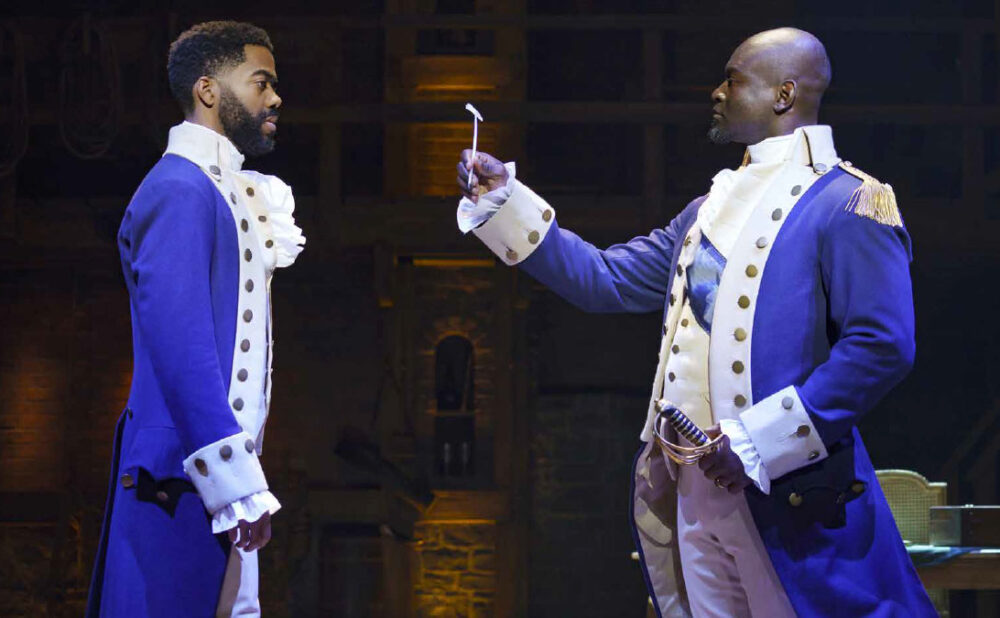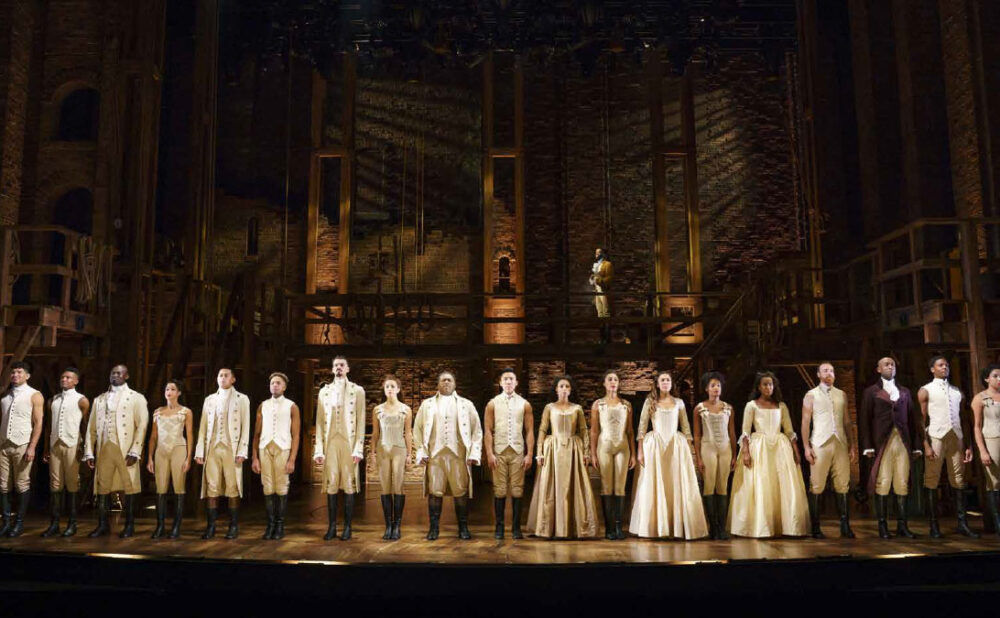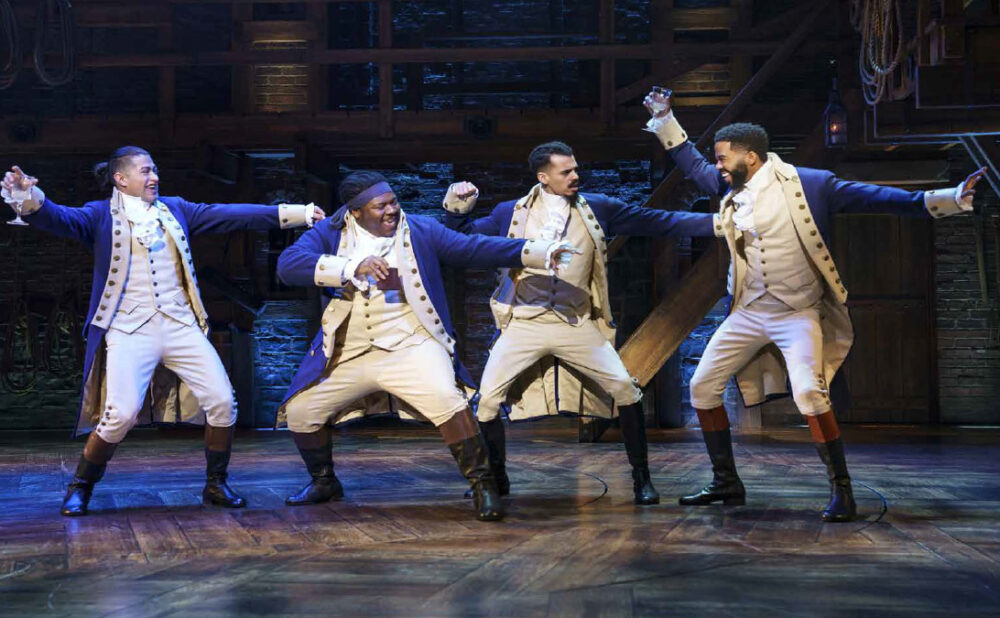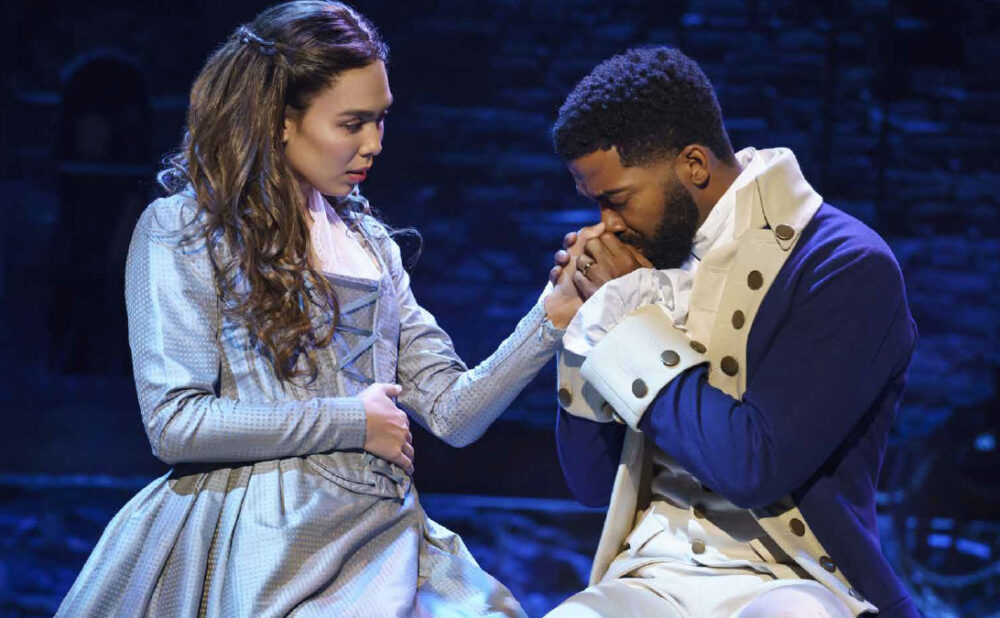Hamilton returns to Toronto with a bang
Groundbreaking play that defined the 2010s roars back at Mirvish
What: Hamilton
Where: Princess of Wales Theatre, 300 King St. W.
When: Now, extended until Sun., Aug. 20
Highlight: Donald Webber, Jr.’s dynamic performance of Wait for It
Rating: NNNN (out of 5)
Why you should go: The hit show’s touring cast gloriously reinvents the husband-and-wife roles of Alexander and Eliza Hamilton. DeAundre’ Woods takes a charismatic, collected approach to Alexander while Morgan Anita Wood finds immense nuance in Eliza. Together, they are electric.
THREE YEARS AFTER its Toronto premiere was abruptly halted by the pandemic, Hamilton — the unanimously acclaimed hip-hop musical that revolutionized the world of musical theatre when it premiered on Broadway in 2015 — began its extended Toronto run Thursday night in a triumphant touring production.
And while composer Lin-Manuel Miranda has long since stopped performing as the titular founding father, the magnetic DeAundre’ Woods anchors this touring production by bringing a surprisingly boyish charm to the role.
The decade-spanning show follows Alexander Hamilton’s personal and political rise and fall: in act one, he gets married, arrives in New York as a scrappy 19-year-old and becomes America’s first Secretary of the Treasury. In act two, a political scandal ruins his reputation and he gets killed in a violent duel by longtime rival Aaron Burr (Donald Webber, Jr.), who is also the show’s narrator.
There are three North American Hamilton tour casts; this one is the “And Peggy” cast (lovingly nicknamed after one of the show’s comedic side characters). Like all the Hamilton touring productions, it replicates director Thomas Kail’s acclaimed Broadway staging.
Yet because this is old staging, the actors have to fight to keep the show fresh. While in most musicals this can be achieved by playing with phrasing and rhythm, that’s hard to do in Hamilton: the show barrels forward like a freight train, so there’s no time for dramatic pauses and rap is too rhythmically precise to be messed with on the fly.
But they find other tools. Dynamics are a big one: music director David Atkinson has carefully sculpted the rises and falls of the actors’ voices. Sometimes, this backfires, and the volume dips too low to make out what’s going on. But, often, it helps the cast tap into the emotional highs and lows of their characters. I’m thinking here of Webber, Jr.’s Burr: when Burr interacts with other characters, Webber, Jr. keeps his voice down, embodying the character’s “talk less, smile more” mantra; but when it’s time to confide in the audience during songs like Wait for It, he cathartically unleashes the full power of his voice and lets the ocean of emotion he’s been keeping down come spilling out.
Woods’ charismatic approach to Hamilton breathes new life into the role. While Miranda’s Hamilton was excitable and impulsive, Woods plays it far cooler. His Hamilton isn’t cocky because he has to be but because he wants to be. Everything is calculated. This makes Hamilton’s death all the more touching: he walks to his fate with a confident determination, completely unaware of what’s coming.
The biggest revelation, however, is Morgan Anita Wood’s fiery performance as Hamilton’s wife, Eliza. Though on paper the role can feel a little flat, Wood uses her powerhouse voice to find new depths in it. Every beat is fully realized; no moment is wasted. And though Eliza says she is “helpless” for Hamilton, her radiant confidence lets us know who’s really in control.
Kail and choreographer Andy Blankenbuehler’s slick staging make clever use of the ensemble. They act as a kind of on-stage audience, slinking around in the shadows and quietly watching the action unfold. And since the show’s closing number asks the question, “Who lives, who dies, who tells your story,” these dimly lit figures are given extra importance. We are clearly meant to wonder what they think of Hamilton’s story and how they would tell it if given the chance.
John Tory’s recent scandal hung over Hamilton’s last act, and the show will resonate with Toronto audiences as a study of a fall from political grace. Hamilton is, after all, a man smart enough to reform a nation’s financial system but blind enough to walk himself and his family straight into destruction.












